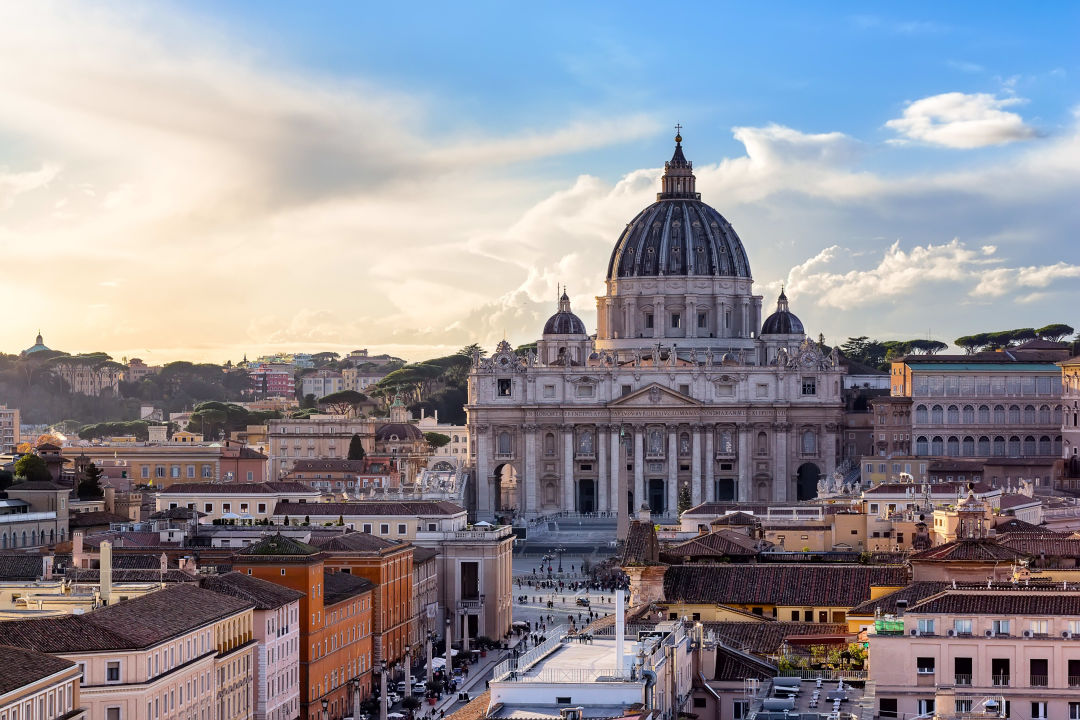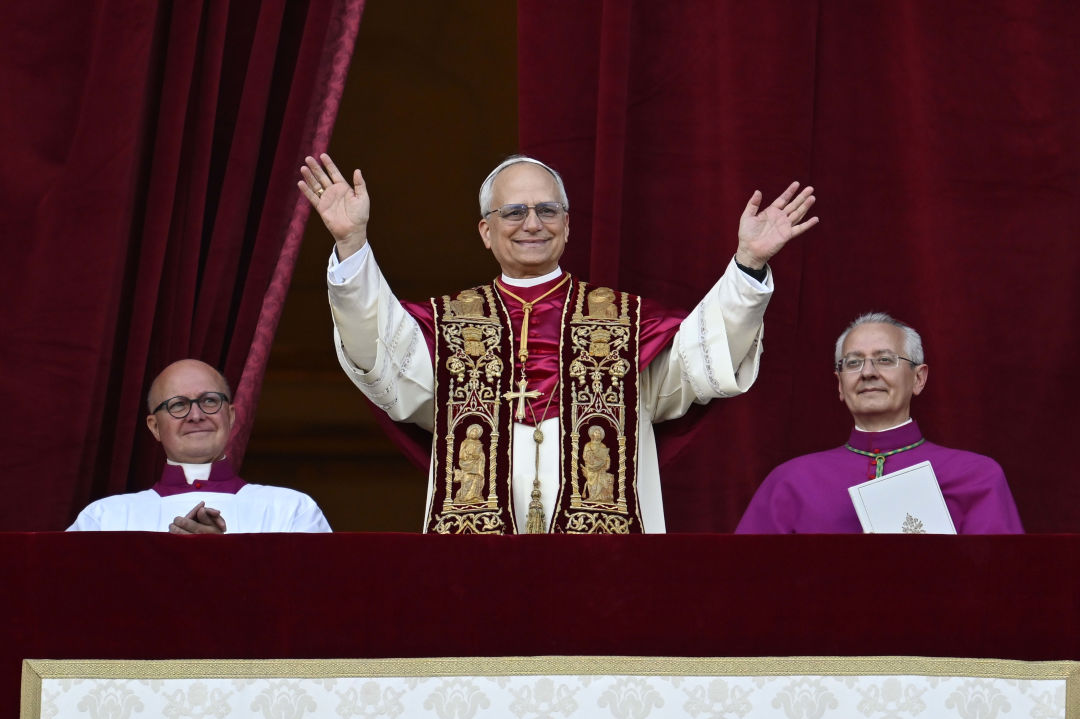What It Was Like Being in St. Peter's Square When Pope Leo XIV Was Elected

I should have known that the cardinals had made their decision when I heard the loud clanging of the bells and saw a pair of young boys sprinting down the street. But it was Rome, it was early Thursday evening, the air was full of crisp May hopes and anticipation. I am, after all, an American journalist in Rome, so bells and boys running didn’t seem so abnormal.
It was only when a friend from Sarasota texted me—“Do you see the white smoke?”—that I realized that these had actually been signs. Unlike when Pope Francis had died on Easter Monday and a sense of quiet disbelief fell over the city, the announcement of a new Pope had been expected.
I dashed down my apartment stairs and raced to St. Peter's Square, first by tram, then on foot. My phone dinged with constant texts. The Italians in the amateur Greek class I was taking used this opportunity to practice the language in our group chat— “Exoume Pàpa”—or “We have a pope”—only to add, in Italian, “Si dice così?” ("Is that how you say it?") A woman pacing the stairs by my apartment said into her phone, “Hanno fatto il Pàpa.” (“They’ve chosen the pope.”)
The scene in St. Peter’s piazza was chaotic, thousands of people shoved together and giant television screens alternating images of the square and the balcony from where the new pope would eventually emerge. Finally, there was a flash of red and Cardinal Dominique Mamberti came out: “Habemus Papam," he said. In English: “We have a pope.” The crowd erupted into cheers.

Image: Courtesy Vatican Media
The new pope would be Cardinal Robert Francis Prevost, the first to be born in the United States, a 69-year-old from Chicago who had served as a missionary and bishop in Peru, then eventually under Pope Francis, becoming the Prefect of the Dicastery for Bishops and president of the Pontifical Commission for Latin America—influential positions involved in choosing the next bishops.
But the crowd didn’t necessarily know all of this at the time. All they knew, or at least what they were sure of, was that he was American. When a woman gasped, “Ma è un americano?” ("But he’s an American?") I, too, felt a moment of astonishment. As a journalist, I had spent the past two weeks combing the various lists of possible candidates, their biographies, their profiles—I had watched the tongue-in-cheek video of Bologna Cardinal Matteo Zuppi, one of the papabili, or possible popes, set to a Gen Z anthem, the song “Von Dutch” by Charli XCX. I had wondered if the selection of an American pope might shift the church in a new direction, and I didn’t imagine that that shift would be towards Francis' ethos, but away from him.
But this pope, when he began his speech, seemed to immediately defy characterization. "He has a nice face," noted the same woman in the crowd who was shocked to discover his nationality. It's true—there was a warmth in his eyes. And he opened his speech with a winning sentiment: peace. His first words as Pope Leo XIV were, “La pace sia con tutti voi" (“Peace be with you all." )
In his address, he also invoked his predecessor, imploring the crowd to “keep in our ears the weak but always brave voice of Pope Francis,” who blessed Rome on Easter Sunday. He also returned consistently to the concept of peace, offering a special message to the church of Rome: “We must try together to be a missionary church, a church that builds bridges and dialogue, that is always open to receiving everyone, like this piazza, with open arms.”
As Pope Leo XIV went back into St. Peter’s and the Vatican complex, the crowd dissipated, many people hunting for a spot with some cell service. I walked over to a group of middle-aged Italian women.
They were disappointed. “He’s American,” one woman told me with a slightly dejected tone, as if those words said it all.
“But he left a good impression,” another said. “He presented himself well.”She closed her eyes. “Let’s see what happens.”
We're already seeing that. We are seeing, for the first time, an American pope and a shifting and changing Catholic Church, one that understands more than ever that its relevance lies in attracting a global, not national, audience.
I have lived in Rome for three years, and never have I witnessed the city both come to a halt and open up around one event. The last two weeks felt like a race to this moment. Standing in the piazza, I was moved, despite myself—despite my efforts to remain a neutral journalist and an observer of the world. It was not so much because of the implications of what this might mean for the church or international politics as it was because I was witnessing history. I remembered watching the conclave of Pope Benedict XVI on television as a child, and it was almost impossible to reconcile the fact that 20 years later, I was in Rome, in this piazza, watching the election of a new pope happen in real time.
And perhaps, if I'm honest, the selection of an American pope was a validation of the outsider’s conflict I've felt during my three years in Rome. What does it mean to adopt a home that was not and could never really be my own?
I suppose, on a much broader scale, these are the questions Pope Leo XIV will now have to tackle as an American leading a once decidedly Italian institution.
In his address, the pope said that we must build bridges, hold a dialogue. But he will be the first test of a different type of bridge between Italy and America.
I will be keenly watching to see how it all plays out.



